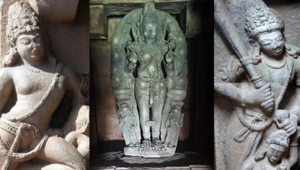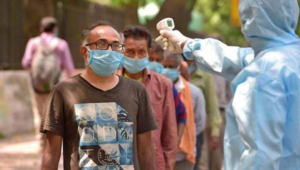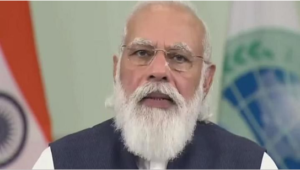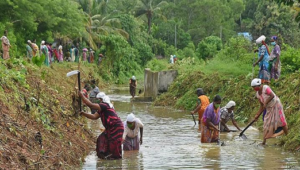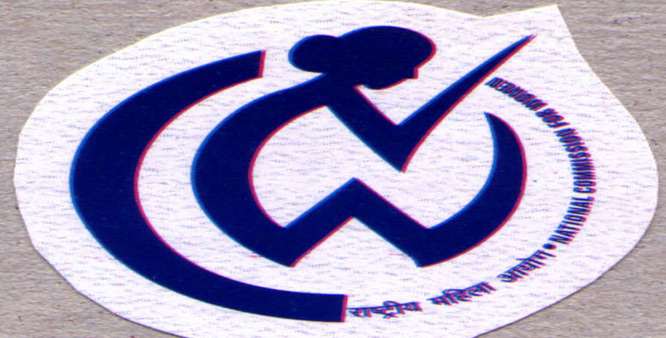
National Commission for Women in India
- The National Commission for Women was set up as statutory body in January 1992 under theNational Commission for Women Act, 1990 ( Act No. 20 of 1990 of Govt.of India ) to :
- review the Constitutional and Legal safeguards for women ;
- recommend remedial legislative measures ;
- facilitate redressal of grievances and
- advise the Government on all policy matters affecting women.
- A brief history
The Committee on the Status of Women in India (CSWI) recommended nearly two decades ago, the setting up of a National Commission for women to fulfill the surveillance functions to facilitate redressal of grievances and to accelerate the socio-economic development of women.
Successive Committees / Commissions / Plans including the National Perspective Plan for Women (1988-2000) recommended the constitution of an apex body for women.
During 1990, the central government held consultations with NGOs, social workers and experts, regarding the structure, functions, powers etc. of the Commission proposed to be set up.
In May 1990, the Bill was introduced in the Lok Sabha.
In July 1990, the HRD Ministry organized a National Level Conference to elicit suggestions regarding the Bill. In August 1990 the government moved several amendments and introduced new provisions to vest the commission with the power of a civil court.
The Bill was passed and received accent of the President on 30th August 1990.
- The Central Government shall constitute a body to be known as the National Commission for Women to exercise the powers conferred on and to perform the functions assigned to, it under this Act.
- The Commission shall consist of :-
- A Chairperson, committed to the cause of women, to be nominated by the Central Government.
- five Members to be nominated by the Central Government from amongst persons of ability, integrity and standing who have had experience in law or legislation, trade unionism, management of an industry potential of women, women’s voluntary organisations (including women activist), administration, economic development, health, education or social welfare;
- Provided that at least one Member each shall be from amongst persons belonging to the Scheduled Castes and Scheduled Tribes respectively;
- a Member-Secretary to be nominated by the Central Government who shall be :-
- an expert in the field of management, organisational structure or sociological movement, or
- an officer who is a member of a civil service of the Union or of an all-India service or holds a civil post under theUnion with appropriate experience
- Powers and Functions
- The commission shall perform all or any of the following functions, namely :-
-
- Investigate and examine all matters relating to the safeguards provided for women under the Constitution and other laws;
- present to the Central Government, annually and at such other times as the Commission may deem fit, reports upon the working of those safeguard;
- make in such reports recommendations for the effective implementation of those safeguards for the improving the conditions of women by the Union or any state;
- review, from time to time, the exiting provisions of the Constitution and other laws affecting women and recommend amendments thereto so as to suggest remedial legislative measures to meet any lacunae, inadequacies or shortcomings in such legislations;
- take up cases of violation of the provisions of the Constitution and of other laws relating to women with the appropriate authorities;
- look into complaints and take suo moto notice of matters relating to:-
- deprivation of women’s rights;
- non-implementation of laws enacted to provide protection to women and also to achieve the objective of equality and development;
- non-compliance of policy decisions, guidelines or instructions aimed at mitigating hardships and ensuring welfare and providing relief to women, and take up the issues arising out of such matters with appropriate authorities;
- call for special studies or investigations into specific problems or situations arising out of discrimination and atrocities against women and identify the constraints so as to recommend strategies for their removal;
- undertake promotional and educational research so as to suggest ways of ensuring due representation of women in all spheres and identify factors responsible for impeding their advancement, such as, lack of access to housing and basic services, inadequate support services and technologies for reducing drudgery and occupational health hazards and for increasing their productivity;
- participate and advice on the planning process of socio-economic development of women;
- evaluate the progress of the development of women under the Union and any State;
- inspect or cause to inspected a jail, remand home, women’s institution or other place of custody where women are kept as prisoners or otherwise and take up with the concerned authorities for remedial action, if found necessary;
- fund litigation involving issues affecting a large body of women;
- make periodical reports to the Government on any matter pertaining to women and in particular various difficulties under which women toil;
- any other matter which may be referred to it by Central Government.
- The Central Government shall cause all the reports referred to in clause (b) of sub-section (1) to be laid before each House of Parliament along with memorandum explaining the action taken or proposed to be taken on the recommendations relating to the Union and the reasons for the non-acceptance, if any, of any such recommendations.
- Where any such report or any part thereof relates to any matter with which any State Government is concerned, the Commission shall forward an copy of such report or part to such State Government who shall cause it to be laid before the Legislature of the State along with a memorandum explaining the action taken or proposed to be taken on the recommendations relating to the State and the reasons for the non-acceptance, if any, of any such recommendations.
- The Commission shall, while investigating any matter referred to in clause (a) or sub-clause (i) of clause (f) of sub-section (1), have all the powers of a civil court trying a suit and, in particular in respect of the following matters, namely :-
- summoning and enforcing the attendance of any person from any part of India and examining him on oath;
- requiring the discovery and production of any document;
- receiving evidence on affidavits;
- requisitioning any public record or copy thereof from any court or office;
- issuing commissions for the examination of witnesses and documents; and
- any other matter which may be prescribed.






